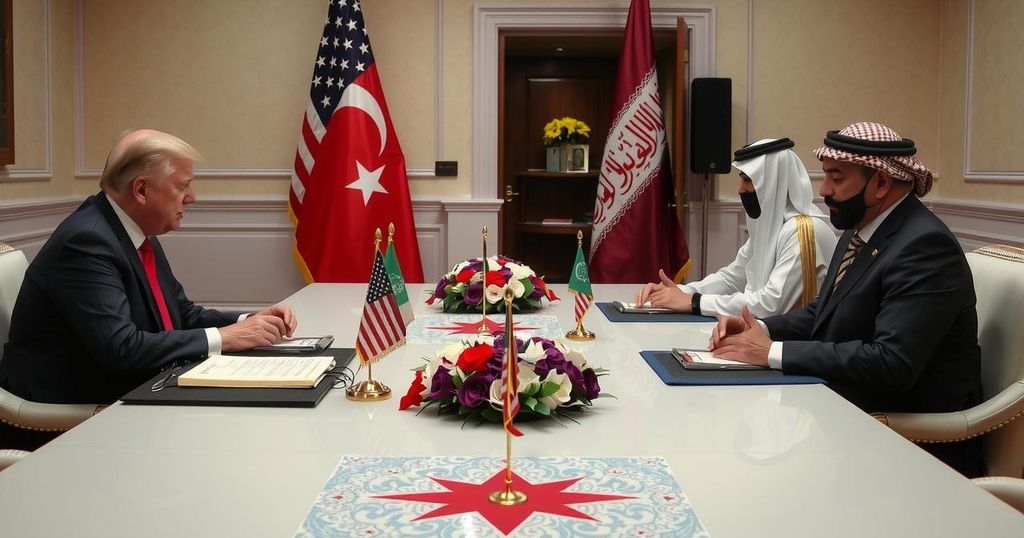Diplomatic Talks in Syria: Turkey Engages with HTS Leader Ahmed al-Sharaa

Turkish Foreign Minister Mevlüt Çavuşoğlu visited Damascus to meet with Ahmed al-Sharaa, the leader of HTS, to discuss a new constitution for Syria, Kurdish concerns, and Israeli military actions. The Biden administration is considering lifting a bounty on al-Sharaa, and new diplomatic dialogues include Jordan and Qatar’s foreign ministers. Meanwhile, U.S. troop levels in Syria have increased to 2,000, signaling changing military engagement in the region.
On Sunday, Turkish Foreign Minister Mevlüt Çavuşoğlu visited Damascus to engage with Ahmed al-Sharaa, the leader of the Islamist group Hay’at Tahrir al-Sham (HTS), who has emerged as the de facto ruler of Syria following the toppling of the Assad regime. The meeting focused on key issues pertaining to the drafting of a new Syrian constitution, the status of the Kurdish population, and addressing Israeli military incursions that challenge Syrian sovereignty. This diplomatic engagement comes as signs of shifting attitudes toward HTS are noted, with the Biden administration reportedly considering the repeal of a previously imposed $10 million bounty on al-Sharaa due to his alleged connections with al-Qaeda. Additionally, a U.S. delegation had met with al-Sharaa prior to the Turkish visit, underscoring the growing diplomatic ties in the region. Concurrently, the foreign ministers of Jordan and Qatar are also participating in discussions in Damascus. Reports from the Pentagon indicate an increase in U.S. troop presence in Syria, now estimated at approximately 2,000, significantly higher than the earlier reported figure of 900.
The ongoing conflict in Syria has led to a complicated geopolitical landscape in which various factions and foreign powers are engaged. Since the escalation of the war, groups like Hay’at Tahrir al-Sham have gained control over significant territories, particularly in the northwest. The Assad regime has faced numerous challenges, leading to an environment where new power dynamics are emerging, particularly concerning the Kurdish population and foreign military involvement, including that of the United States and its allies.
The recent meeting between Turkey’s foreign minister and Syria’s new leader signifies a critical moment in the shifting alliances and power structures in Syria. It highlights the international community’s ongoing interest in stabilizing Syria through dialogue and the drafting of a new constitution. The potential lifting of the bounty on al-Sharaa reflects the complexities of U.S. relations with non-state actors in the region and raises questions about future U.S. military involvement amidst an increasing troop presence. The involvement of regional players such as Jordan and Qatar further illustrates the collaborative efforts needed to address the multifaceted issues facing Syria today.
Original Source: www.democracynow.org








